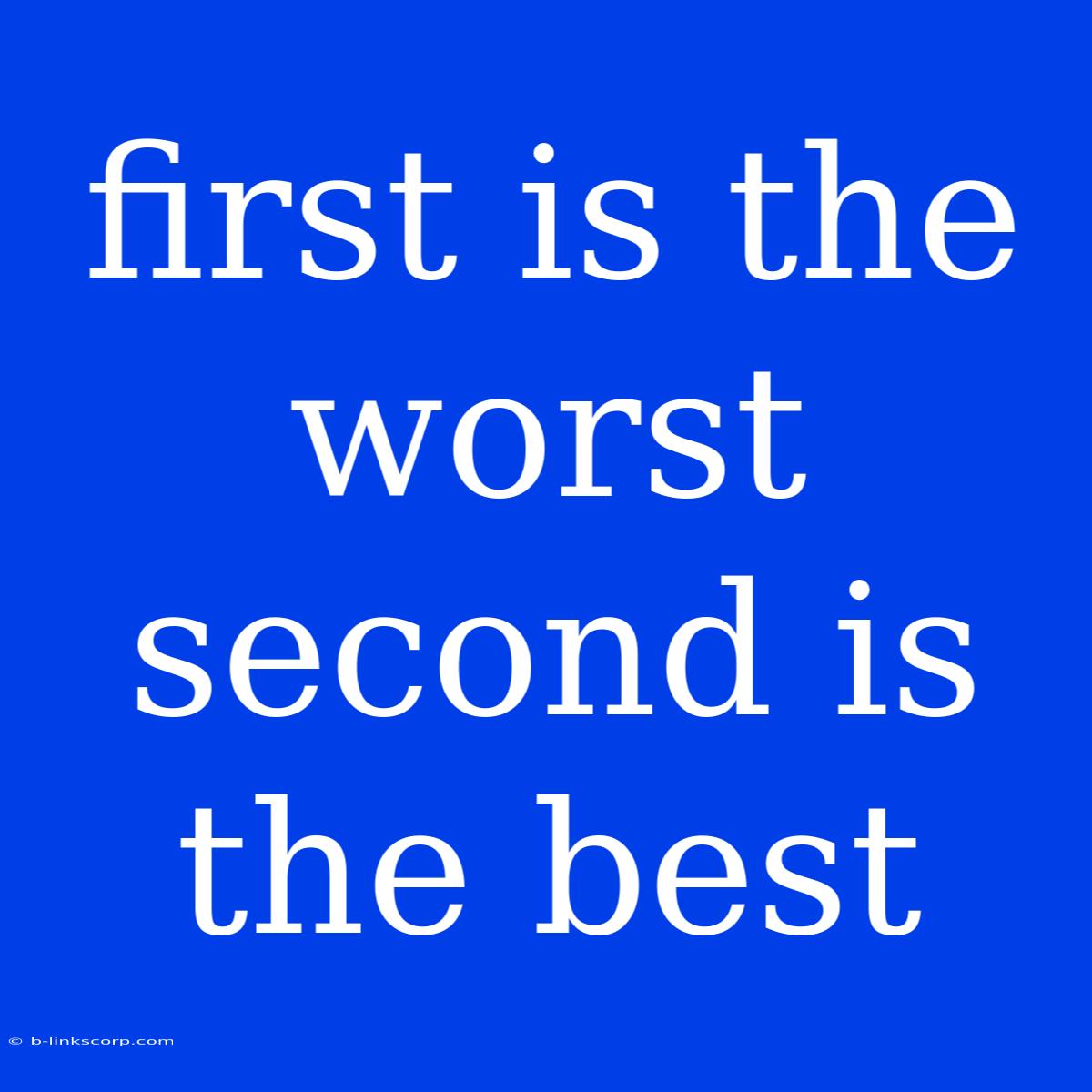First is the Worst, Second is the Best: Exploring the Psychology Behind This Phenomenon
We've all heard the saying, "First is the worst, second is the best." But what does it really mean, and is there any truth to it? This seemingly simple statement actually delves into the complex world of human psychology and decision-making.
The First is the Worst
The "first" often suffers from the curse of newness and unfamiliarity. Think about it:
- Initial impressions: Our first encounter with something, whether it's a new restaurant, a relationship, or a job opportunity, is heavily influenced by our preconceived notions and expectations. We may judge it prematurely based on limited information.
- Lack of context: Without a frame of reference, we may overestimate the importance of early experiences.
- Fear of the unknown: The "first" can trigger anxiety and fear, leading to a heightened sense of vulnerability and a tendency to focus on the negative aspects.
Second is the Best
The "second" benefits from a foundation of experience and learning:
- Improved understanding: The initial experience provides valuable insights and helps us adjust our expectations.
- Reduced anxiety: The "second" is less intimidating because we've already faced the unknown.
- Opportunity for growth: We can apply what we've learned from the first attempt to improve our performance or decision-making.
Real-World Examples
Here are some real-world examples of how this principle plays out:
- Dating: Our first date might be awkward and filled with nervousness. But a second date, armed with the knowledge gained from the first, can be smoother and more enjoyable.
- Job interviews: The first interview might feel like an overwhelming hurdle. A second interview, with the experience of the first under our belt, can boost our confidence and allow us to present ourselves more effectively.
- Learning a new skill: The first attempt at a new skill, such as playing a musical instrument or learning a new language, will likely be clumsy and frustrating. However, the second attempt will be smoother, and we'll start to see progress.
Beyond the "First and Second"
While the saying "First is the worst, second is the best" is a useful rule of thumb, it's important to remember that it's not always universally true. Sometimes, the first experience can be amazing, and subsequent attempts might not live up to the initial excitement.
Key Takeaways
- Don't judge a book by its cover: Embrace the opportunity to learn from your first experiences.
- Don't be afraid to try again: The "second" can be a chance to refine and improve.
- Embrace the power of feedback: Use your experiences, both positive and negative, to inform your future decisions.
The "first is the worst, second is the best" principle serves as a valuable reminder that experience is the best teacher. By acknowledging this principle, we can approach new challenges with a greater sense of optimism and a willingness to learn from our mistakes.

